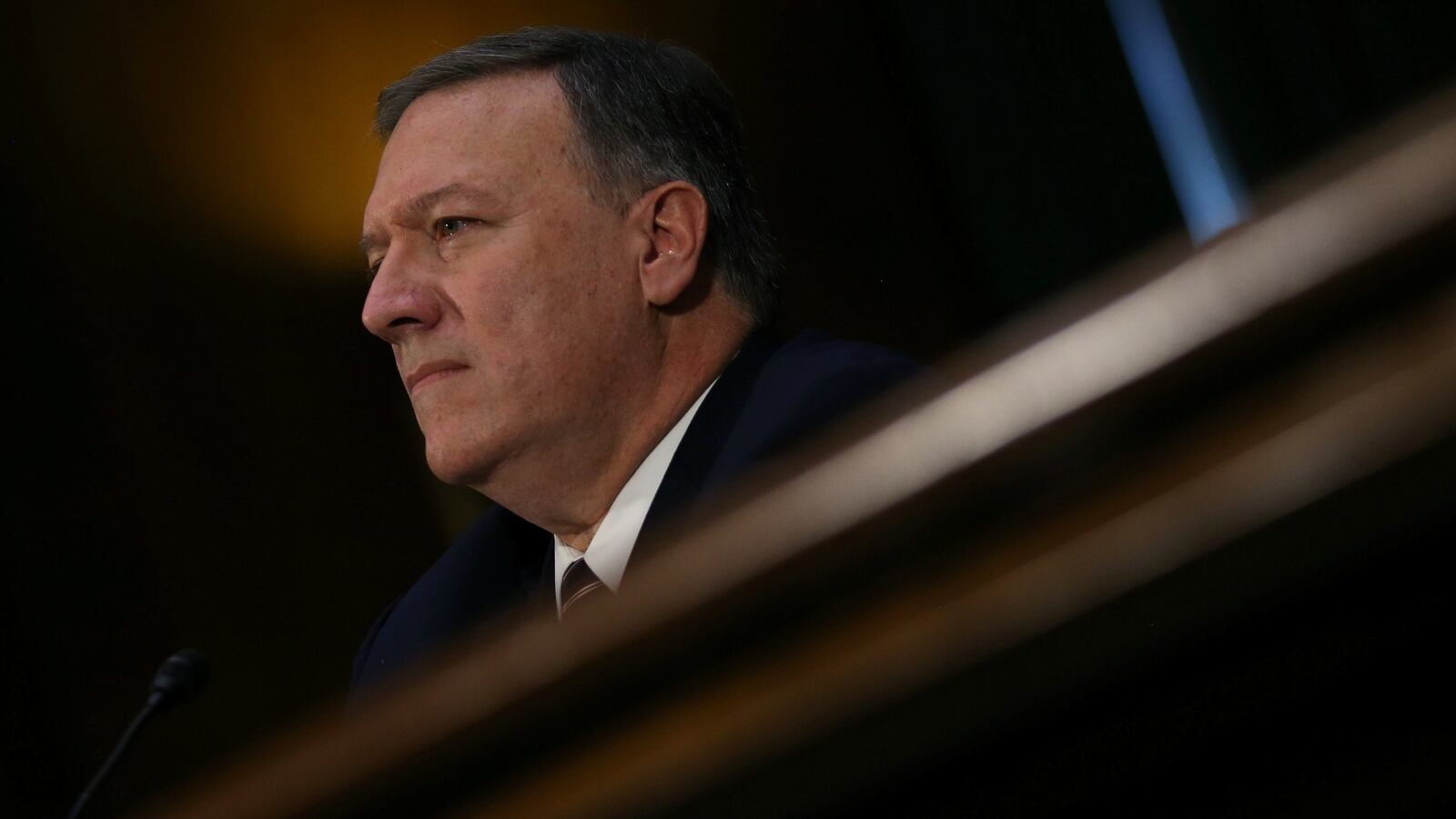Now that President Donald Trump has ripped up the Iranian nuclear deal over the objections of European allies, his new secretary of state, Mike Pompeo, unveiled the outlines of a post-deal Iran policy.
In a bellicose speech Monday, his first as the U.S.’ chief diplomat, Pompeo indicated that the Trump administration believes its “Maximum Pressure” campaign on North Korea has worked and seeks a similar template for Iran. Pompeo said the U.S. would place substantial “pressure” on Tehran, to include “crush[ing]” Iranian operatives “and their Hezbollah proxies” worldwide; described the return of U.S. sanctions, unilateral this time, crippling the Iranian economy; and threatened unspecified “steely resolve” should Iran not accede to what “we demand from Iran.”
Those demands were a maximal list familiar to Iran hawks and go far beyond the terms of the now-scotched deal. Iran, Pompeo envisioned, ought to fully declare and then abandon past nuclear work, give international nuclear inspectors “unqualified access to all sites around the country,” halt its missile program, release U.S. and allied citizens from its jails, “end support” for Mideast terrorist groups, demobilize the Iraqi Shiite militias it supports, withdraw from Syria, cease aid for the Taliban in Afghanistan and the Houthis in Yemen, release al-Qaeda personnel in Iran, and cease threatening U.S. allies in Israel and the Gulf.
“These are twelve very basic requirements,” Pompeo said, adding that a “treaty” would be “our preferred way to go.”
Yet Pompeo recognized that since the Trump administration is the geopolitical outlier in rejecting the Iran deal, he will be twisting the arms of European allies to join Trump’s new policy. Pompeo said he would send a “teams of specialists” to “listen” and educate European capitals on joining U.S. sanctions, something the French, British, and Germans have all but ruled out of hand, but will “hold those doing prohibited business with Iran to account. … we can’t generate wealth for Qassem Soleimani,” the head of the Iranian Revolutionary Guard Corps. But Pompeo also gestured at Israel, Saudi Arabia and the United Arab Emirates—which have cultivated the Trump team substantially and all of which consider Iran an existential threat—as the allies it will listen to on its Iran policy.
The strategic concept Pompeo outlined was the opposite of the one underlying the Iran deal, which sought to verifiably close Iran’s technological pathways to a nuclear weapon and was agnostic on all other aspects of Iranian domestic or foreign policy.
“Iran’s nuclear aspirations cannot be separated from the overall security picture,” he said, telling Tehran to “look at our diplomacy with North Korea” should it doubt Trump’s willingness to negotiate, even as the preliminary diplomacy ahead of a June 12 summit seems rocky.
“I’m not gonna share with you precisely what our response will be” if Iranian resumes enrichment activity, Pompeo said.






